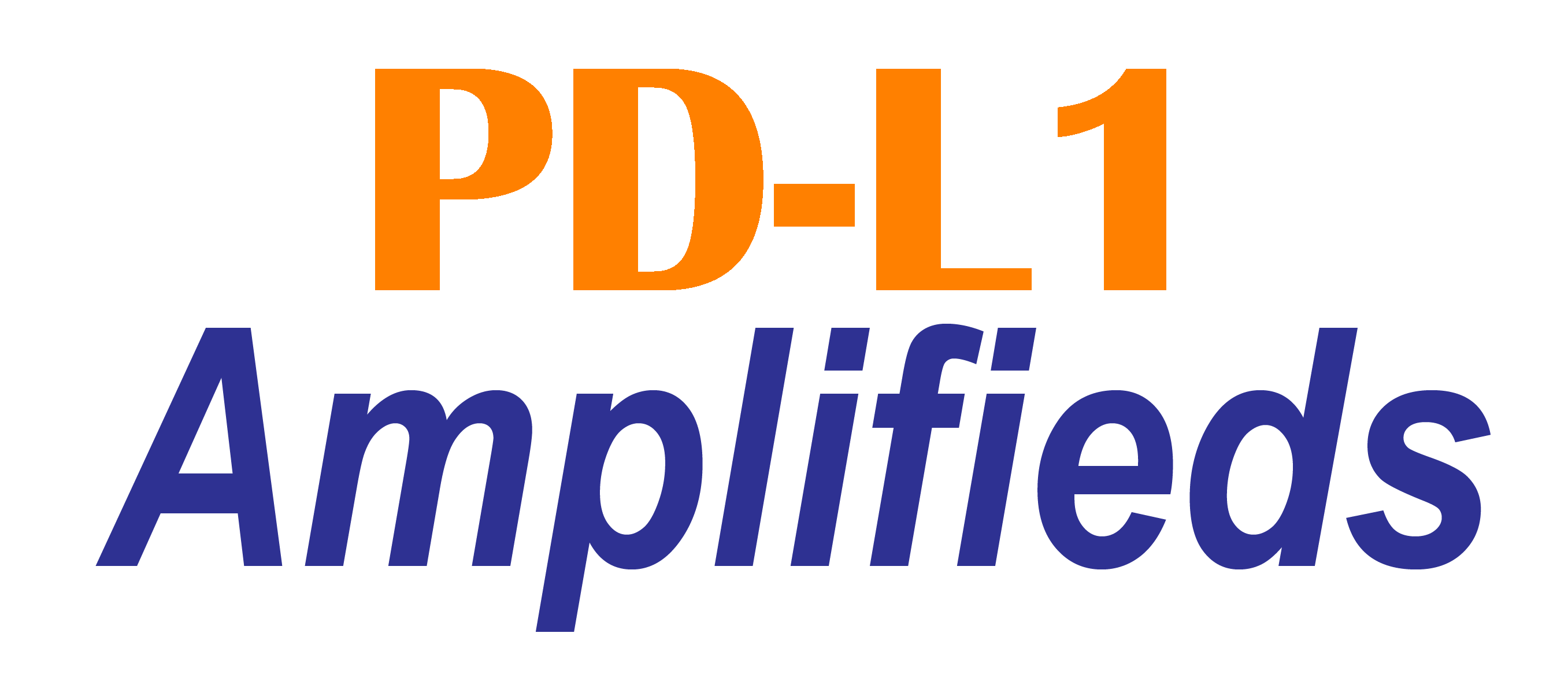A special division of ICAN, International Cancer Advocacy Network
Improving Survival and Quality of Life, One Patient at a Time
Welcome to the support group for patients diagnosed with PD-L1 (CD274) Amplification!
If your tumor is PD-L1 amplified (PD-L1 is also known as CD274; PD-L1 and CD274 are the same gene), it means you have had a Next Generation Sequencing (NGS) report (also referred to as comprehensive biomarker testing or molecular profiling) that has found the PD-L1 gene to be "amplified." You thus, have more copies of that gene than is normal.
Time to bridge the artificial divide.
— Razelle Kurzrock, MD (@Dr_R_Kurzrock) January 12, 2025
If it's a solid tumor target, it's a gene target (and vice versa)
Tissue is not the issue 🔥💡🎯https://t.co/uCeon7HBpx pic.twitter.com/yuUJ2LSqzB
So if you are PD-L1 amplified, you have come to the right place.
We are a multi-stakeholder patient-focused organization featuring fellow PD-L1 amplified patients, their care partners, and medical oncologists interested in this important gene amplification.
We are thrilled to have Razelle Kurzrock, MD as Honorary Chair of the PD-L1 Amplifieds!
If your cancer is PD-L1 amplified, you may well be a candidate for immune checkpoint blockade—the immunotherapies you hear about all the time—KEYTRUDA (pembrolizumab), OPDIVO (nivolumab), TECENTRIQ (atezolizumab), IMFINZI (durvalumab), BAVENCIO (avelumab), LIBTAYO (cemiplimab), and many more such drugs in the pipeline.
Why is Next-Generation Sequencing (NGS) critically important to identify PD-L1 amplifications?
- Because as a seminal 2018 article by Aaron Goodman, MD and Razelle Kurzrock, MD et al. in JAMA Oncology reported, PD-L1 amplification is a potential biomarker for immune checkpoint blockade response. (See source below)
- Because a tumor can have PD-L1 low or absent by immunohistochemistry and still be PD-L1 amplified and may still respond to checkpoint inhibitors (immunotherapy).
- And because a patient can be TMB low or intermediate and still be PD-L1 amplified and might still be able to benefit from immunotherapies.
In a small study, nearly 70% of patients with end-stage, treatment refractory solid tumors with PD-L1 amplification "had objective responses after checkpoint blockade administration." The longest responder remains in complete remission at 6.5 years.
PD-L1 amplification has been identified in more than 100 different solid tumor types.
Some of the tumor types that have been shown to be PD-L1 amplified are listed below; however, a small subset of virtually any tumor type can have PD-L1 amplification:
- liver mixed hepatocellular cholangiocarcinoma
- metastatic basal cell carcinoma
- urothelial carcinoma
- bladder squamous cell carcinoma
- renal sarcomatoid carcinoma
- thyroid anaplastic carcinoma
- nasopharyngeal carcinoma
- soft tissue sarcoma (NOS or undifferentiated)
- head and neck squamous cell carcinoma
- lung sarcomatoid carcinoma
- cervix squamous cell carcinoma
- cancer of unknown primary (squamous cell)
- breast cancer (NOS or triple negative)
- lung squamous cell carcinoma
- epithelial ovarian carcinoma
- lung small cell carcinoma
- lung adenocarcinoma
- hepatocellular carcinoma
- cholangiocarcinoma
- gastric adenocarcinoma
- gastroesophageal junction adenocarcinoma
- glioblastoma
- endometrial carcinoma
https://jamanetwork.com/journals/jamaoncology/fullarticle/2684636
(See Table at page 1240)
Know Your PD-L1 Amplification
- Ongoing, Direct Navigation of Your Case
- Review of Your Biomarker Testing Reports
- Second Opinion Referrals
- Matching You with Clinical Trials / Expanded Access / Compassionate Use Matching
- Your Own "Angel Buddy" to Help with Side Effects, and...
- Guide to Collateral Medications for Patients on Anticancer Therapies, Elena Siltanen, MSc.Pharm
Essential
Patient Services
- Molecular Profiling Matching Services
- Molecular Tumor Boards (when oncologists disagree)
- Join our Mutational Registry
- Participate in our Tissue Triaging Service
- Join our NGS Ambassadors to Emphasize Molecular Profiling
- Know the Co-Alterations found with Your Insertion Mutation
PD-L1 Amplified Research Initiatives
- Invitation to our On-Demand Summit/Video Project for Patients, Scientists, and Clinicians
- Real World Evidence Studies and Survey Research (you are compensated for your time)
- Participate in our Clinical Trials Project
The PD-L1 Amplified Community: Keeping Up With Developments
- Access to our 10 Social Media Sites (closed group to protect your privacy)
- Access to our Virtual Patient and Care Partner Meet Ups (closed group to protect your privacy)
- Patient and Care Partner Meet-Ups at Conferences and Academic Medical Centers
- Patient and Clinician Webinars on New Drugs
- Research and Literature Updates and Daily Alerts/Postings
- Cancer Conference Updates
Paying It Forward: Helping Our PD-L1 Amplified Community
- Become an Angel Buddy for a New Patient or Care Partner
- Participate in our Public Policy Advocacy Initiatives and Briefings
- Train to be an Effective Citizen Lobbyist or Media Interviewee
- Participate in our Speakers Bureau
- Assist our International Health Equity Efforts
- Volunteer for Clerical and Excel Projects
- Join our Research Teams
Keep the PD-L1 Amplifieds Going
- Help the PD-L1 Amplifieds Raise Funds to Keep Our Patient and Research Services Entirely Free
- Create a Facebook, Twitter, or Instagram Fundraiser Benefiting the PD-L1 Amplifieds
- Donate to Fund These Services
- Donate Appreciated Stock
- Leave a Legacy—Create a Named Program
- Donate In-Kind Services
Membership
All you need to do to join the PD-L1 Amplifieds is:
- Please fill out the PD-L1 Amplifieds Intake Form and submit it to us.
- After reviewing your PD-L1 Amplifieds Intake Form, we will then schedule an intake phone interview with you, or with you and your family, to discuss your case and confirm your specific PD-L1 Amplification (making sure you that you have had NGS or Next-Generation Sequencing to identify the amplification).
- Alternatively, you may email membership@pdl1amplified.org and tell us that you are interested, and we'll schedule an Intake phone call with you or with you and your family since the journey with a PD-L1 amplfication is very much a family affair.
Since ICAN and the PD-L1 Amplifieds strictly adhere to all HIPAA (Health Insurance Portability and Accountability Act of 1996) provisions to protect your privacy, during our initial intake call/meeting with you, we will review, and you will have a chance to discuss with us our Navigation Consent forms.
PD-L1 Amplifieds Leadership
PD-L1 Amplifieds (https://pdl1amplifieds.org) is a special division of
ICAN, International Cancer Advocacy Network.
*Marcia K. Horn is President and CEO of
ICAN International Cancer Advocacy Network and
Executive Director of the Exon 20 Group and PD-L1 Amplifieds.


